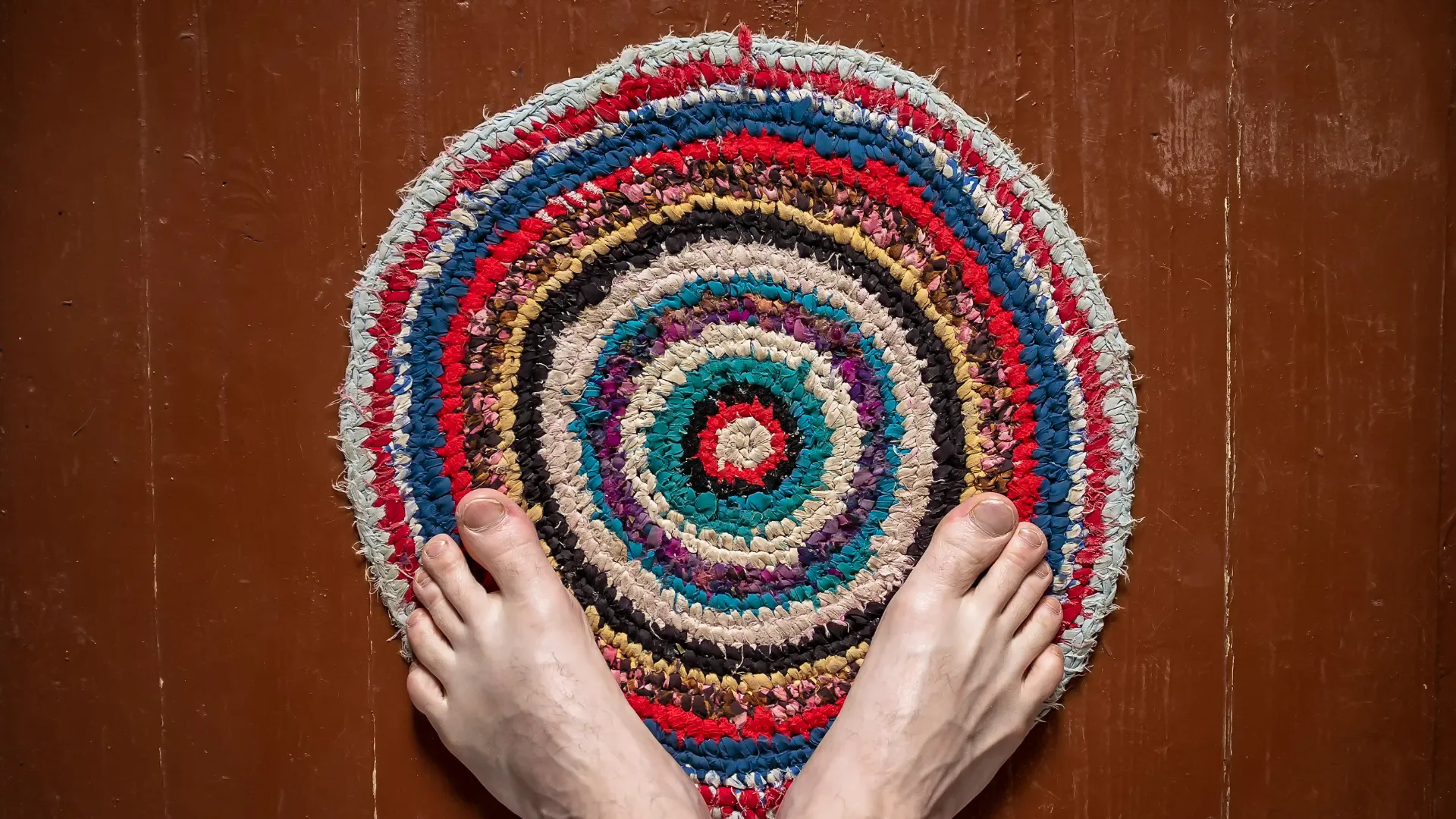karena
Never knowingly letting facts stand in the way of a good assumption….
Never knowingly letting facts stand in the way of a good assumption….
By Karen Amos
I’ve had a couple of similar experiences this week with clients and associates. They’ve reported situations where they, or people working for or with them, were becoming upset and anxious about certain issues.
There was one core theme – everyone was guessing how everyone else felt and what they thought about the situation. It’s amazing – and as a coach, I come across this all the time – people behave like they have some sort of innate psychic ability. Except that if they did (spoiler alert: they don’t!), they really shouldn’t go splashing out on too many lottery tickets as they don’t seem to be very good at it!
One of the huge benefits to having a coach is that you have access to someone skilled in ‘reality checking’. As is often the case, this sounds simple, but it’s really not. Think about it. Any misunderstanding around a situation is usually because the parties involved aren’t on the same wavelength – they don’t share the same reality as the other person. There are innumerable reasons for this, but they include:
- Not recognising our own feelings
- Not recognising the other person’s feelings
- Not having access to all the information
- Working to different timescales
…and the list goes on.
Obviously, this lack of information leaves gaps – and we don’t like gaps, as they make us feel insecure – so we try to fill them. The way we do this is usually through making assumptions. Of course it’s Janet’s fault that you feel nervous about attending the meeting she’s chairing, because she clearly doesn’t care about your feelings…
 A coach is able to bring a fresh perspective through the use of questions, that help clarify, not what’s going on, but what’s REALLY going on. Sometimes this can be tough, as let’s face it, it’s much easier to blame Janet for chairing rotten meetings that make you nervous, rather than admit the reality that you never seem to have the time to properly prepare for them. Knowing what’s REALLY going on, means you can then start to find a solution to the issue. Maybe you need to stop assuming Janet knows how you feel and ask for some support. Maybe you need to re-prioritise your workload to allow time to prep for meetings so you’ve opportunity to shine and show off your achievements…
A coach is able to bring a fresh perspective through the use of questions, that help clarify, not what’s going on, but what’s REALLY going on. Sometimes this can be tough, as let’s face it, it’s much easier to blame Janet for chairing rotten meetings that make you nervous, rather than admit the reality that you never seem to have the time to properly prepare for them. Knowing what’s REALLY going on, means you can then start to find a solution to the issue. Maybe you need to stop assuming Janet knows how you feel and ask for some support. Maybe you need to re-prioritise your workload to allow time to prep for meetings so you’ve opportunity to shine and show off your achievements…
Here are a few useful coaching questions when you find yourself in a difficult situation:
- What’s going on here?
- What’s REALLY going on here?
- What’s the root cause of my problem – is it something I can control?
- Does the other person know I’m experiencing this problem?
- What do they think about this?
- What’s the reason for their behaviour?
And most important of all…
- What’s my evidence to prove this?
Once you’ve started to make sense of your reality, you can then take positive steps to improve your communication without the hang-ups that often hold us back - and perhaps even pack away that crystal ball...
If you’d like to find out more about how coaching can help you, contact Karen Amos at BrightBird Coaching and Training to book your free discovery session. Karen will help you to explore the issues and challenges you’re facing and how you can overcome these.
Karen Amos is an executive coach and founder of BrightBird Coaching & Training. She supports business owners and managers to get the best out of themselves and their teams. She brings a down-to-earth approach to improving working lives through better leadership, communication and working relationships.
Contact: [email protected] / 07714 855757
Dare you discuss your work performance?
By Karen Amos
I've just listened to an excellent episode of 'Ramblings' on Radio 4, where Clare Balding discussed mental health in business with an ex-CFO of a FTSE 250 company. He explained how he had experienced depression all his life, but felt he had to hide this in his workplace, as to disclose this would have been detrimental to his career.
He also discussed his lifelong tendency to focus on the negative - something I'm sure most of us have suffered from at some point. A classic example of this is ignoring the 99% positive feedback in your performance review and just hearing the 1% that could have been better.
Whilst there is a difference in the interventions needed to help people who are experiencing mental ill-health, there was a clear acknowledgement that there was a need to discuss areas of concern, performance and difficulties faced in the workplace. This is necessary to proactively prevent mental illness and promote wellbeing and build positive performance.
The assumption is that men find it more difficult to talk about themselves. My experience as an executive and professional development coach however, is that just as many women face the same fears and challenges. Surely, being able to do this should be seen as a strength, but many of my clients will not disclose to others that they are receiving coaching for fear of being perceived as 'weak' or 'under-performing'.
At the end of the programme Clare Balding asked the man if he would have any problem engaging with a sports coach to enhance his performance on the field. Without hesitation he said, 'No'. The implication is that this is seen as a positive move. The question then was, 'Why then are so many people reluctant to seek the same help in the workplace?' That support exists - it's also called a coach!
What's your stance on engaging someone to help your peformance at work? Are you prepared to speak candidly with someone, in confidence about your work performance, or does this feel 'unsafe' for you?
Karen Amos is an executive and professional development coach and training and the owner of BrightBird Coaching & Training. If you'd like to find out more about how Karen can help you and your team to be more positive and productive, get in touch for a no-obligation chat. Call on 07714 855757, or email [email protected]
6 Top Q&A's for Managing Conflict in the Workplace
6 Top Q&A’s about Managing Conflict in the Workplace
By Karen Amos – BrightBird Coaching & Training
1 What do we mean by conflict?
Conflict at work could mean anything from two people disagreeing on how to do a small task, to major disagreements that can become very personal between managers and team members at all levels. This has a negative effect on productivity, morale and often results in high staff turn-over, at huge cost to the business or organisation. We all have our own definition of ‘conflict’ and it’s important to understand this before we start to deal with conflict ourselves.
2 Is conflict always a negative thing?
Left unaddressed, the negative impact of conflict invariably spreads and has an adverse effect on productivity and morale. High performing teams always have some element of conflict however, that’s how they get their best ideas. The key is managing this constructively. We’ll show you practical ways to harness effective communication in your team.
3 What if I just have a personality clash with someone else?
It’s not possible that everyone in a workplace would get on well all the time. Sometimes we just have to accept that we’d never really choose to work with someone if we didn’t have to. Unfortunately, that’s not always possible, but there are constructive things we can all do that will allow us to have a better quality of working life and to be more productive for the business. We’ll cover practical ways of managing this on the workshop.
4 I'm a manager, but tend to avoid conflict wherever possible. How can I change this?
This is a really common issue. Our past experiences will influence how we behave in the present. When it comes to conflict, many people have had bad experiences with family, teachers, or poor managers in the early part of their career. Past history doesn’t have to dictate the future however and once managers are equipped with the right tools, they can start to build their own confidence in managing and pro-actively avoiding conflict in their teams. One way we can do this is by trying an ‘experiment’. By this, we mean trying out a new approach in a safe environment, where the negative consequences are limited should things go wrong. This is an excellent way for people to overcome fears and self-limiting beliefs in the workplace. We work though how to do this and more on the workshop.
5 My team are constantly in conflict - what can I do about this?
There’s rarely one reason why teams are in ongoing conflict. Some examples would be lack of communication, personality clashes, lack of clear decision-making and leadership and uncertainty within the team.
Whilst it doesn’t always appear to be the case, there are simple things you can do to address all of these that will start to have an immediate positive impact, both on your managers and staff at all levels. It’s really important to build a culture of personal responsibility within organisations – the success of the organisation is everyone’s business. The coaching approach in our training shows you how you can implement these tools quickly and effectively within your business or organisation.
6 What will I gain out of this training workshop?
You will have opportunity to build skills and confidence to manage conflict in the workplace, with both individuals and teams. The workshop will enable you to develop your own personal ‘toolkit’ to deal with difficult situations in the workplace in a practical way and show you how to generate positive outcomes and build personal and collective responsibility.
Date of next workshop: Thurs 30th January 2020
Click here for more details and to book
Just do it! Why it's not that simple and what to do about it...
By Karen Amos
'Just get on with it!' There I was, berating myself with this very phase this morning. I've a stack of jobs to do, but just can't seem to make traction. If only giving myself a stern talking to would solve the problem...
Of course, if it was that simple, we'd all be one of the ultra amazingly successful business people (with beautiful tans and teeth!) we see paraded on social media every day of the week. So - do I head to the tanning parlour and book myself in for a new set of dental veneers, or is there another way?
The reason 'Just Do It' isn't that simple is due to our mindset. I'm not going to propose an answer to all your problems here, but try this coaching approach to generate some relatively quick turnarounds to generate positive results.
First of all we need to understand that our thoughts and feelings dictate our actions. If we want new results, we need different actions, which in turn require new ways of thinking. Often our thoughts are unhelpful to us, which in turn mean a lack of desired results.
To develop more useful thoughts, ask yourself:
- What exactly would constitue a good result here?
- What would be a good result for today?
- In order to get this result, what do I need to think?
If you're stuck, remember you can always fall back on the ever-helpful coaching question of, 'What would I advise someone else to think in this situation?'
As an example, this morning I identified three things that I needed to think to enable me to make headway:
- I've a window of opportunity over the next couple of weeks that I must make the most of.
- I actually have all the skills and knowledge I need for this right now.
- I just need to do one job at a time to make progress, rather than being bogged down with a mountain of work.
Simply having these thoughts has been enough to give me a jump start and make progress towards my goals. Give it a go - it literally will take a couple of minutes of your time!
Karen Amos is an Executive and Professional Development Coach and owner of BrightBird Coaching & Training. She specialises in supporting managers and business owners to build positive and productive teams, through 1:1 and team coaching and training workshops.
If you’d like to find out more about how coaching can help you and your team, contact us for a free, no-obligation chat on 07714 855757, or email [email protected]
Stop the Bus! How to Deal with Overwhelm...
Stop the Bus! How to deal with overwhelm…
By Karen Amos
I was working with someone this week who confided in me that she was feeling completely overwhelmed with work. My response? ‘Stop the bus!’ Well, this gained her attention if only to wonder what on earth I was talking about (particularly seeing as there was no bus in sight) - which was compounded by my next instruction, ‘Turn off the ignition. Now get off the bus!’
Feelings of overwhelm are no stranger to most of us – I include myself in this. Issues and tasks mount up and we become less and less effective, whilst proportionately becoming more and more anxious. It frequently leads us to a complete standstill, or at best, with us tinkering around the edges with minor activities, whilst the important stuff is left unattended.
To be honest, I’ve found myself in just that situation this week, so thought I’d share a few thoughts and strategies on how I’ve dealt with this.
- Stop the bus!
In order to deal with overwhelm, we need to stop the endless cycle of panic, fear and urgency that’s gripping us. We need to recognise these are just feelings – our feelings. They don’t accurately reflect what’s going on in the world around us.
One way to do this is to ‘Stop the ‘overwhelm’ bus’ by literally doing just that – stopping and taking time out to evaluate your situation. ‘Are you joking?’ I hear you exclaim! ‘That’s the point, I can’t take time out and that’s why I’m feeling overwhelmed!’
As I alluded to earlier, we need to check out the reality of this situation. Chances are if we’re feeling overwhelmed, we’re being completely, or at least relatively, inefficient. We aren’t working at our best, or most effective, so looking at it that way, wouldn’t it be a good investment to take at least a couple of hours out to fix the situation, knowing you’ll be back to full capacity when you’ve done so?
However you visualise it, stop your bus, turn it off and get off. Plot out a couple of hours for yourself where you won’t be disturbed, take a change of scenery if that helps, but lift yourself out of that head-down, flat-panic world.
- Work out what’s important
It’s so easy when feeling overwhelmed, to get caught up in tasks and minor activities. This just leads to a vicious cycle of firefighting, where you haven’t a second to look up and take control. As a result, your first task needs to be to identify what are the important, significant issues and goals you should be dealing with.
I’ve just re-visited my 12-week-year planner, to re-focus and remember what I’m actually working towards. Seeing things in a ‘broader-brush’ context is often immediately comforting. If you don’t already have a plan or strategy, just ask yourself, ‘What would I like to see that would make the most difference in 6/12 months’ time?’ and start from there.
- Prioritise
This is a word that’s thrown around like confetti, but let’s face it, if it was that easy we’d already be doing it, right? The problem with overwhelm is that often everything feels like a priority. You feel leaned on and obligated to other people too.
I’ve found there are some great coaching questions to help weed out what’s really a priority. Try a few of these:
- Does this help me achieve my bigger plan/strategy/aims?
- Do I actually need to do this? What will happen if I don’t? (If you’re not sure, try a very informal risk assessment in your head – i.e. What’s the probability and severity or not doing this).
- Is this my priority/issue, or is this really someone else’s?
- If it’s someone else’s, how do I hand this back to them, or help them with this?
- What one thing could I do right now that would make the most difference?
- When do these things actually need doing by? Set some new timescales according to your capacity.
- Is there someone else who can help with this?
- Facing your demons
Just one final thought – I often work with clients who feel overloaded with minor activities and tasks at all levels in organisations. There’s a common theme when we start to drill down though, which is that we often focus on small tasks and activities, as they’re easier and less daunting than tackling the bigger issues.
Again, useful coaching questions would be:
- Being honest myself, is there anything I’m avoiding right now?
- What would I advise someone to do in my position?
Hopefully, you’ve found something useful in there, for you, or a member of your team and can stop your runaway bus or train and embark on a more enjoyable and productive journey.
If you would like to book one-to-one or Team Coaching for your business, organisation or school, or would like an informal, no-obligation chat about how this can work for you, call us on 07714 855757, or email [email protected].
You can book a FREE Discovery Coaching session to experience the benefits of coaching yourself. Find out more HERE.
You can find out more and book using the links below:
Check out our latest training FREE Introduction to Coaching and Essential Coaching Skills Webinars at: https://brightbird.wordifysites.com/book-a-course/
 Karen Amos is an executive coach and founder of BrightBird Coaching & Training. She supports business owners and managers to get the best out of themselves and their teams. She brings a practical, down-to-earth approach to improving working lives through better leadership, communication and working relationships.
Karen Amos is an executive coach and founder of BrightBird Coaching & Training. She supports business owners and managers to get the best out of themselves and their teams. She brings a practical, down-to-earth approach to improving working lives through better leadership, communication and working relationships.
Helping you move the rug when you’re stood on it – The power of coaching
By Karen Amos
My late and much-missed mentor used to have a brilliant phrase when I was bogged down in work issues – ‘You’re trying to move the rug, but you’re stood on it.’ It's a phrase I now use with many of my clients and the response is usually a resounding, ‘Yes! It’s exactly that!’
Often as a coach, this is exactly what I’m tasked to do – help my clients move that rug. So what’s the rug? It could be anything from managing an overwhelming workload, unpicking the intricacies of team dynamics to enable staff to work effectively, to prioritising which problem or issue to deal with first to develop a robust business. Whatever the scenario, I'm sure you know that feeling of pressure, but not knowing even where to start to resolve things, as every factor seems to depend on other factors for success.
Why can't we just sort this stuff out for ourselves? Basically, it’s due to the plate spinning that’s part of everyday working life. Here’s an example. Clients often come to me to improve their time management and work-life balance. If it was that simple, they wouldn’t need a coach. After all there are any number of books, apps and online videos with a plethora of tips and strategies.
So why is coaching successful when these things often fail?:
1. You need to identify the right issue to work on. If you don’t get to the root cause of the problem, you’ll continue to come back to the same issues. Whilst hints and tips are useful, they only address the symptoms of the problem. To gain lasting change, you need to find out what the real issue is. Using time management as an example, people often come to me to help manage their emails or to-do list, but the root cause could actually be a lack of confidence to say no, or other members of the team not doing their share.
2. Gives you a strategy for success – Once you’ve identified the root cause of the problem, coaching helps you put in place a strategy for the future as you’d choose it to be. Coaching helps you lift your head and gain a clearer picture of what a good solution to your problem would be. Again, an example would be that we would work on confidence, mindset and communication skills to enable you to be able to say no to unreasonable demands and put alternative actions into place.
3. Coach as accountability buddy – It’s easy to give in when the going gets tough isn’t it? We’ve all experienced this at some time or another, whether it’s learning a new language or embarking on a fitness drive. Knowing you’ve a regular meeting with someone who is going to ask about your progress is often a powerful motivator to stick with change, even when you feel like walking away from it all.
4. Independent feedback – Coaches often talk about ‘challenging’ their clients. This really isn’t as confrontational as it sounds, but we are able to question and dig deeper regarding your motives for your actions and also help you to test out scenarios in a safe space. Your coach is there for you only, so I will often ask my clients if it’s ok to give them some feedback on perhaps how they have presented themselves, or their communication skills. Completely independent feedback is often impossible to come by in our work and personal relationships and can be invaluable to help move you to more positive ways of behaving.
5. Walking toolkit – I often describe myself as a walking toolkit for my clients. Through my experience, training and development as a coach, I’ve picked up lots of concepts and tools that can help frame the world differently and bring some clarity and a way forward. This could be everything from decision-making tools, to understanding your personal interactions with others, to leadership approaches. As mentioned above, these aren’t used indiscriminately, but rather are tailored to your individual requirements, saving you having to filter out what you need from the overload of information out there.
Hopefully that’s given you a taste of why coaching can be such a powerful tool - supporting you make positive changes when you really can’t see a way out of the situation. Helping you to move that rug!
Karen Amos is an Executive and Professional Development Coach and owner of BrightBird Coaching & Training. She specialises in supporting managers and business owners to build positive and productive teams, through 1:1 and team coaching and training workshops.
If you would like to find out how BrightBird can help you build your performance and support your teams to remain positive and productive, get in touch for a chat and to book your no-obligation FREE 1-hour Discovery coaching session.
We offer online video 1-to-1 coaching support from senior leadership to front-line staff and also team/group coaching.
Tel: 07714 855757 or email: [email protected]
 Karen Amos is an executive coach and founder of BrightBird Coaching & Training. She supports business owners and managers to get the best out of themselves and their teams. She brings a down-to-earth approach to improving working lives through better leadership, communication and working relationships.
Karen Amos is an executive coach and founder of BrightBird Coaching & Training. She supports business owners and managers to get the best out of themselves and their teams. She brings a down-to-earth approach to improving working lives through better leadership, communication and working relationships.
Put down the phone... Step away from the phone... The power of habits
By Karen Amos
Did you set any goals or resolutions for new year? One of mine was to change my habits around my mobile and social media use. I was spending way too long on my phone, which had several negative effects, including having terrible sleep habits.
I'd also stopped doing lots of constructive and positive things that were either good for my health (e.g. just moving about more), or my mental wellbeing, such as reading.
First step was admitting to myself that this issue was having a negative impact on me. I then built in some leverage by thinking about all the things I could do with my time, but also how embarrassed I was to admit to anyone how much I actually used my phone. Frequently the painful things are the most effective!)
I decided my strategy would be not taking my phone into my bedroom. That way, I couldn't be tempted into any late night scrolling. (Yes I know, really living the high life here!) I resisted the urge to make huge sweeping changes that would seem unattainable. Instead, I kept this simple and achievable, with a view that I could roll out further changes later. As a practical step, I decided to charge my phone on the landing, which means if I do want to check it on an evening, I don’t hang around too long.
So… the result so far? I’m amazed at the difference changing one small habit has made. The best part is that there has been a much wider change to my habits as I experienced the positive effects of my changes. These included:
- My sleep is so much better – I fall asleep quicker and have more hours sleep that before.
- Physically things are so much better – my eyesight has improved, I move around more, my posture is better, I’m back in my training/exercise regime.
- I’m much less stressed – I don’t allow myself to be exposed to, or seek out things that I find distasteful, or annoying. I wouldn’t invite many of the people posting stuff into my home, but that’s exactly what I was doing with social media.
- My mindset is much more positive – I seek out positive things to do instead of scrolling the phone, including reading more and listening to audio books and podcasts.
As a coach I frequently remind my clients about the power of our habits. Habits are small things we do regularly – for good or bad. Obviously, none of us are perfect (even coaches!), so it’s an ongoing task, if we want to shape our life the way we’d choose.
One great little tool to help you change a habit is the ‘If/then’ statement. An example of how this worked for me was, ‘If I charge my phone on the landing… then, it won’t be in the bedroom on a night, so I won’t keep scrolling on social media.’ Try it, it really does work.
The amazing thing is that once we start to change one small thing, we unleash a positive knock-on effect that brings unforeseen benefits in other areas. This is the power of coaching, where we support someone to identify something they want to change and set out practical ways to achieve this.
Karen Amos is an Executive Coach and owner of BrightBird Coaching and Training.
If you’d like to find out more about how coaching can help you and your team, get in touch for a no-obligation chat. (Tel: 07714 855757/ Email: [email protected])
Top Tips For Setting Goals That Work...
Top Tips For Setting Goals That Work...
By Karen Amos
So you’ve been all fired up to make that change, but reality’s dawning… the nights are long, you’re tired, you've a stack of work to do, there are at least 2 new cat videos on facebook that need watching…
If you’re struggling to make that change, here are some tips on how to set goals that stick:
Break goals down – Goals can seem overwhelming, so go ahead and have that big goal to work towards, but then break it down into small, attainable steps, so you can see your progress and give yourself a pat on the back. You wouldn’t set a goal of running a marathon this year, then set out to run 26 miles the next day would you? So apply the same logic to all of your goals.
Habits – As above, the secret to success isn’t in making huge, drastic steps. Rather, it’s in setting better habits. Habits are no more than small actions made regularly and consistently. If you’ve set yourself a goal to get a better work-life balance, then set a reminder for the time each day that you’ll leave work and leave your laptop in its case when you’re at home. If you want to lose weight, set yourself a number of alcohol-free days each week. Once you’ve mastered one thing, you’ll be ready to move onto adding another good habit. So ask yourself, ‘In order to achieve my goal, what habits do I need to adopt?’
Quality not quantity – Don’t set too many goals. It’s tempting when we’re feeling motivated to change, to set lots of huge, life-changing goals. Instead, stick to one or two meaningful goals that you can really concentrate on.
Concentrate on the positive – This doesn’t mean being a complete Pollyanna about everything, but instead frame your goals in the positive – i.e. what you ARE going to do, rather than what you’re going to give up. We never really give something up - instead to be successful we have to replace a bad habit with a good one – e.g. ‘I’m going to eat healthy food,’ rather than, ‘I’m giving up chocolate.’ That way you won’t feel like you’re suffering and will focus on the positive impact of your decision.
Own your goals – Never set a goal because you feel you ‘should’, or ‘ought’ to do it. As a coach, this immediately tells me that someone else’s rules are kicking in here. Doing something for someone else is bound to end in failure. Work out what YOU really want instead.
Write goals down – Writing down your goals helps you clarify what you mean, but also gives a sense of commitment on your part. This also allows you to revisit and review your progress. Sounds a bit formal? It can do to some people, but how you record it is up to you. You can set up a word document, use an app, or there are some interesting diaries out there that help you to record your goals and progress.
Tell other people – The simple act of telling someone else your goal brings a whole heap of commitment to what you’re intending to do. No-one likes to lose face, so we’re more likely to make sure it’s the right goal and to follow it through when someone else knows about it. Alternatively, you can enlist an accountability buddy who will work with you on your goal and chivvy you along when times get tough.
Make it enjoyable – There’s absolutely no point in setting a goal that’s going to make you miserable! At the very least, make sure you keep hold of why you’re doing the goal in the first place – this is where writing it down makes all the difference. But again, the key is in framing your goal in positive terms. If your goal is to get fit, then instead of setting yourself some draconian diet regime, why not set your goal to find a new place to walk in the countryside each weekend with the dog and kids?
Track your progress – Devise some sort of system where you can track your progress towards your goals. Weight-loss companies have done this very successfully for years, so take a leaf out of their book and work out a way you can record your successes. This is so easy with technology at our fingertips nowadays, or even just writing down a weekly success chart. This will help you keep going when ‘life’ gets in the way and you don’t feel like carrying on.
One lapse doesn’t spell disaster – We all lapse from our good habits and routines from time to time. Having a blow-out and eating your body weight in chocolate one day (or is that just me?! :D ) doesn’t mean your whole weight-loss goal is lost. Tomorrow’s a new day and you can just pick up where you left off. We’re often more resolute after that happens anyway, so put the lapses behind you and plough ahead!
Be nice to yourself – As with the tip above – don’t beat yourself up about this. You’re taking the right steps for the right reasons, so remember to reward and praise yourself for your achievements. And remember to accept compliments from others too – it really does make a difference!
Do it NOW! - Seize the day! There will never be a perfect time to start your new goal, so just get on with it. Don't give yourself excuses why you should wait until tomorrow - Act now and you'll have taken the first small, but significant step!
Good Luck and let us know if you have any tips to share…
Karen Amos is the founder and owner of BrightBird Coaching & Training. She is a qualified Executive and Professional Development coach and trainer, working with organisations and businesses to get the best out of leaders and teams.
If you’d like to know more about BrightBird’s professional development services and how we can help you and your business, school or organisation, please check out our website at www.bright-bird.co.uk, or email [email protected]
Struggling with your resolutions or goals? This could be the reason...
Struggling with your resolutions or goals? This could be the reason...
By Karen Amos
As with my earlier post this week on New Year Resolutions, lots of people are talking about re-setting their work-life balance at the moment. It seems having a break over the holiday period has given people some perspective on the stress they were experiencing last year.
Reaching a personal ‘Pain Point’ usually motivates us to want to make a change. The problem is that we don’t always work on the right issue. Some things to remember are:
- We need to focus on what we are going to do to change things, rather than what we aren't going to do. (Remember, we get what we focus on, so if we focus on what we don't want, we'll get more of that!)
- We need to work on the problem, not the symptoms. To do this, we need to find the root cause.
- Also, we need to set the right conditions for change. There’s no point expecting a major life change in one area, if everything else we do remains exactly the same.
As an example, I realised recently that I've stopped doing a lot of creative things this last couple of years, particularly drawing and watercolour painting. Work, business and life in general just got in the way. Doing some quick doodling and sketching the other day, I realised how much this brings to me and that I miss having a creative element in my life.
On reflection, I worked out that the root cause of the problem wasn't really lack of time, but how I was using the time I had. Looking back I realised I used to do so many creative things, despite working an often ridiculous number of hours in management positions in addition to being a carer for an elderly relative. Working out what had changed, I had the uncomfortable realisation that since that time, I had discovered social media! The time I spent on social media now, doing such vital tasks as watching never-ending dog and cat videos, takes up much of my ‘spare’ time. (Obviously, checking BrightBird social media accounts don’t apply, so feel free to carry on with that! ;) )
If I was at all serious about making this change, I needed to tackle this, meaning that I’d need to change my habits around social media, in order to fit in the things I really wanted to do. My steps so far include:
- Planning in time in my diary for painting at least once a fortnight.
- Planning in times I will check my social media accounts.
- Being clear about what I’m checking and for how long.
- Not taking my phone into the bedroom to break the habit of social media being always there at the start and end of each day.
- Making sure I’ve a range of other reading materials at hand, so I don’t automatically reach for my phone and start scrolling.
I’ll review this in a week or so and see how I’m getting on, but it’s interesting to see that only one of these steps actually involves the act of painting itself. Had I not identified the root cause of the issue, it’s unlikely I’d ever have picked up my paint brush again!
Hopefully, this has given you some tips on being more successful with your own goals. Do let us know how you get on!
Karen Amos is the founder and owner of BrightBird Coaching & Training. She is a qualified Executive and Professional Development coach and trainer, working with organisations and businesses to get the best out of leaders and teams.
If you’d like to know more about BrightBird’s professional development services and how we can help you and your business, school or organisation, please check out our website at www.bright-bird.co.uk, or email [email protected]
New Year - To resolve, or not to resolve - that is the question...
New Year - To resolve, or not to resolve - that is the question...
By Karen Amos
Well it’s that time of year again! Social media has been awash with New Year posts and I have to admit, even as a coach, I get a bit jaded with all this ‘New Year – New You’ malarkey.
So… amidst all the opinions, the question remains, ‘Is New Year a good time for Resolutions,’ and should we be doing them anyway? My opinion is an unequivocal – ‘If you want…!’ Yes, that’s right, I’m not going to advocate either way, because do you know what? - If you’re having to force yourself to make a life change it’s highly unlikely to work. So don’t bother, save yourself time/money/guilt [delete as appropriate] and carry on regardless.
On a positive note, New Year can be an excellent time for gaining motivation to change. Most people are feeling the need to de-tox after over-indulging over the holiday period and are feeling more rested and motivated. There’s also a sense of being ready for a new start for lots of people. If this is how you feel – GO FOR IT! Often we need a bit of pain (e.g. The awful reality of tight waistbands and admitting all our clothes haven’t really shrunk in the wash…) to give us the fillip we need to make change.
Perhaps we should change our language and avoid the term ‘resolution’. After all, what we’re usually talking about is a long-term change in our habits. When we use the term ‘resolution’, we usually couch this in terms of a negative – i.e. We will ‘STOP’ or ‘GIVE UP’ something. Actually, that approach rarely works, as we just end up obsessing about the thing we’re trying to avoid. Ever heard the phrases, ‘You get what you focus on,’ and, ‘What you resist, persists’? On a very basic level, this means that if you try to stop doing something, you only bring it to your attention more – I’m sure my fellow chocaholics will know this feeling well…
Instead, we need to drill down to what we really DO want. i.e. Do we really want to stop eating chocolate, or do we want to feel fitter and more confident physically? In this case, chocolate is only one part of the issue – what we really need to do for success is to work out what steps we need to take to attain the fitness. If this is less rewarding than the chocolate, then you’re going to be in for a lot of disappointment. The key is to build in a tangible goal with a set of positive habits (Habits being small actions you do regularly) that will lead you to the positive life you’re choosing. (More on this in a forthcoming post).
If your thing is more related to work-life balance in the coming year for example, build in what you ARE going to do, rather than what you AREN'T. Again, I'll post more on this in the next few days.
So if you’ve set a resolution or goal, then good luck with that. If you can’t be bothered, then good luck too – you’ll know best when you need to make a change. In any event, here’s to a positive and productive 2019 for everyone!
Karen Amos is the founder and owner of BrightBird Coaching & Training. She is a qualified Executive and Professional Development coach and trainer, working with organisations and businesses to get the best out of leaders and teams.
If you’d like to know more about BrightBird’s professional development services and how we can help you and your business, school or organisation, please check out our website at www.bright-bird.co.uk, or email [email protected]










